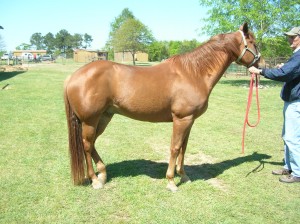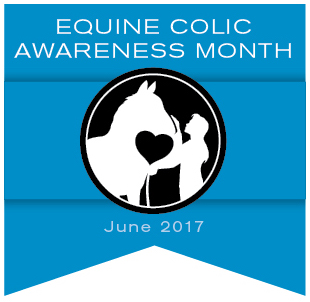 Pam Sherburne shares the story of her own personal colic experience with her Quarter Horse Chico. Thanks for sharing Pam!
Pam Sherburne shares the story of her own personal colic experience with her Quarter Horse Chico. Thanks for sharing Pam!
At 8:00am on January 17, 2013, I got the call we all dread from the barn manager. “Chico is down with colic. And It’s bad – the vet is already on his way.” My husband and I raced to the barn 45 minutes away. Chico was laying still but the stall was evidence of a terrible struggle and his face, including his right eye, was torn up. The vet arrived shortly and after a brief exam told us that it was beyond anything he could deal with. He gave Chico enough pain killer to get him on his feet and into the trailer and we rushed him to the LSU School of Veterinary Medicine, 45 minutes away.
Opting for Colic Surgery
After an exam and blood work, they told us that without immediate surgery, there was no chance of survival. We opted for the surgery. Chico had an epiploic foramen entrapment and it was in a bad place. This is a condition where the intestine slips through the wall, becomes entrapped and begins to die. Six feet of small intestine and Chico’s ileum had to be removed. The surgery lasted almost five hours – a very long time for an equine to be under anesthesia. But he made it and did well for several days until they fed him hay, and he had a severe colic. LSU called and said we might want to see Chico while we could. I was devastated; he had seemed to be doing so well. But, amazingly, he began to get better and was released about two weeks after the surgery.
Recovery & The Future
The next several months were rocky, to say the least. Chico had to return to LSU several times due to colic and my vet came out for a few more mild episodes. Chico has not colicked since April. The vets at LSU say that although every month that passes is a good sign, he will be at increased risk for a year. Although Chico had a history of several colic episodes over the years, the experts cannot connect epiploic entrapments to other types of colic. In fact, no one knows the cause.
I have had Chico for nine years. Just like so many others, we are a team. I plan to ride him until we both retire. He is, for me, irreplaceable. I am 66 years old. I don’t have nine more years to get another horse to this level of training and trust. I hope and pray more research will be conducted to learn about the causes of this condition. I have since learned that two friends have lost horses to this, and trying to care for Chico these last five months has been really scary. No one knows for certain what the best aftercare is. I have begun to ride him again and it is pure joy. We try to enjoy each day and each ride and not worry too much about the future. However, I may never get rid of that feeling of anxiety when my cell phone rings early in the morning.
There is just so very much that remains to be learned about all colics. I hope this campaign helps us to better help our horses.






